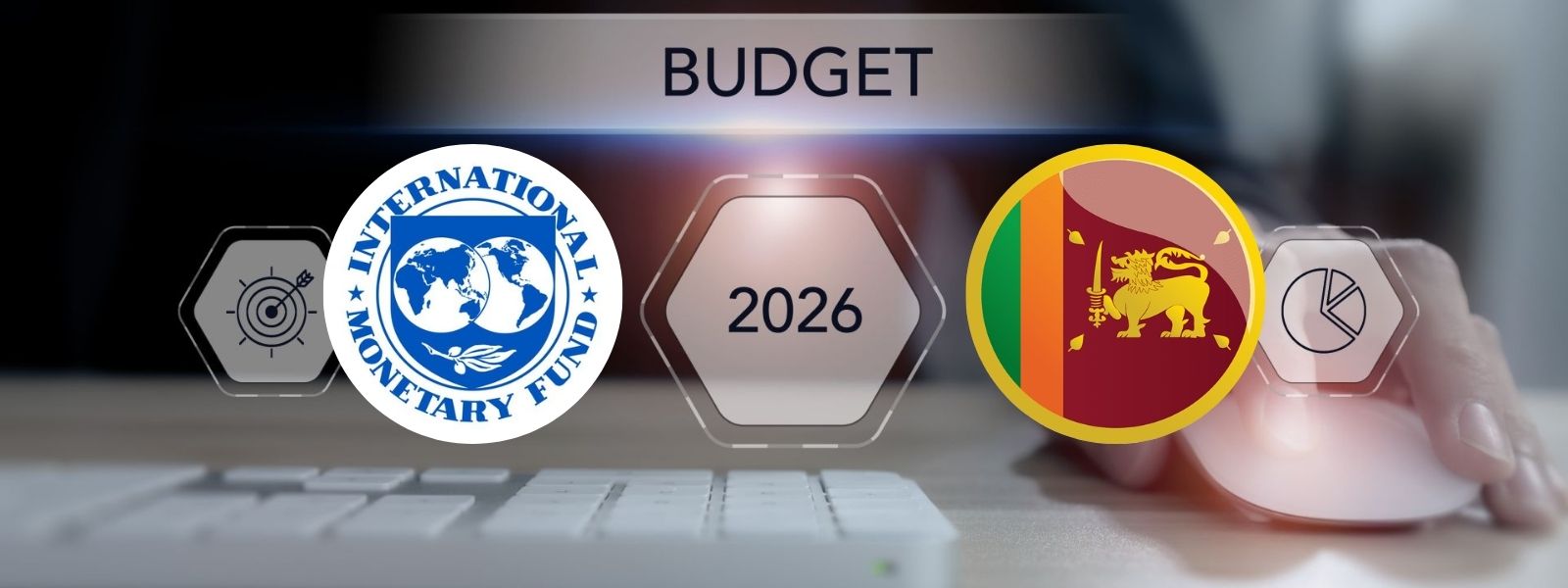.webp)

IMF Eyes Sri Lanka’s 2026 Budget as Key Test in Fifth Review
COLOMBO (News 1st); As Sri Lanka prepares its 2026 national budget, the International Monetary Fund (IMF) has outlined the framework for its upcoming Fifth Review under the Extended Fund Facility (EFF), emphasizing the importance of fiscal discipline, structural reforms, and accurate data reporting.
The review will be shaped by both retrospective assessments and forward-looking targets, with the budget playing a central role in determining the country’s progress.
Evan Papageorgiou, IMF Mission Chief for Sri Lanka, stated that while the Fifth Review is still in its early stages, discussions are set to begin soon through a staff visit to engage with Sri Lankan authorities. This visit will help define the scope of the review and set the tone for evaluating the country’s economic trajectory.
“Obviously, it's a bit early. We just finished the Fourth Review. We have a little bit of time ahead of us,” Papageorgiou noted.
The Fifth Review will follow the IMF’s standard dual-track approach, assessing both past performance and future plans. This includes evaluating quantitative performance criteria and indicative targets for the test period ending June 2025, as well as structural benchmarks scheduled between June 30 and December 30, 2025. Continuous benchmarks such as tax revenue floors, primary balance targets, and social spending commitments will also be scrutinized.
A key highlight of the upcoming review is the 2026 Budget, which Papageorgiou described as a “very, very important part of the program.”
The IMF will work closely with Sri Lankan authorities to ensure that revenue and expenditure targets align with both the program’s requirements and the government’s own fiscal goals.
“We will ensure that revenue and expenditure and all the targets are met in accordance to the program and also in accordance to the authorities’ targets,” he said.
On the structural reform front, the Fifth Review will examine progress on several critical initiatives:
- Repeal of the Simplified VAT (SVAT) system.
- Reform of the tax exemptions framework, including those related to the Strategic Development Projects (STP) and Port City.
- Review of the electricity tariff methodology, in collaboration with development partners.
- Governance improvements in State-Owned Enterprises (SOEs) and customs operations.
- Maintaining cost recovery in energy pricing, particularly electricity.
In addition to fiscal and structural benchmarks, the review will also cover governance reforms, monetary policy, and foreign reserves management. These areas are considered essential to ensuring macroeconomic stability and sustaining the reform momentum.
Papageorgiou emphasized that while the Fourth Review has just concluded, the Fifth Review will build on its outcomes and address emerging challenges.
Sri Lanka’s 2026 national budget will be presented to Parliament in October 2025, with the second reading (budget speech) scheduled for November, and the final debate and third reading to take place during November and December, according to a proposal approved by the Cabinet of Ministers.
The Department of Government Information in a statement said that the budget will be prepared under the theme “Production Economy and Inclusive Participation in Economic Development”, aligning with the government’s long-term policy framework "Rich Country and A Beautiful Life" and the National Policy Framework 2026–2030.
In line with the Public Finance Management Act No. 44 of 2024, all ministries are required to submit proposals to secure funding for their respective projects and programs.
Other Articles
Featured News





.png )
-797105_550x300.jpg)

-797093_550x300.jpg)
-797087_550x300.jpg)
-797081_550x300.jpg)
-797075_550x300.jpg)
























.gif)